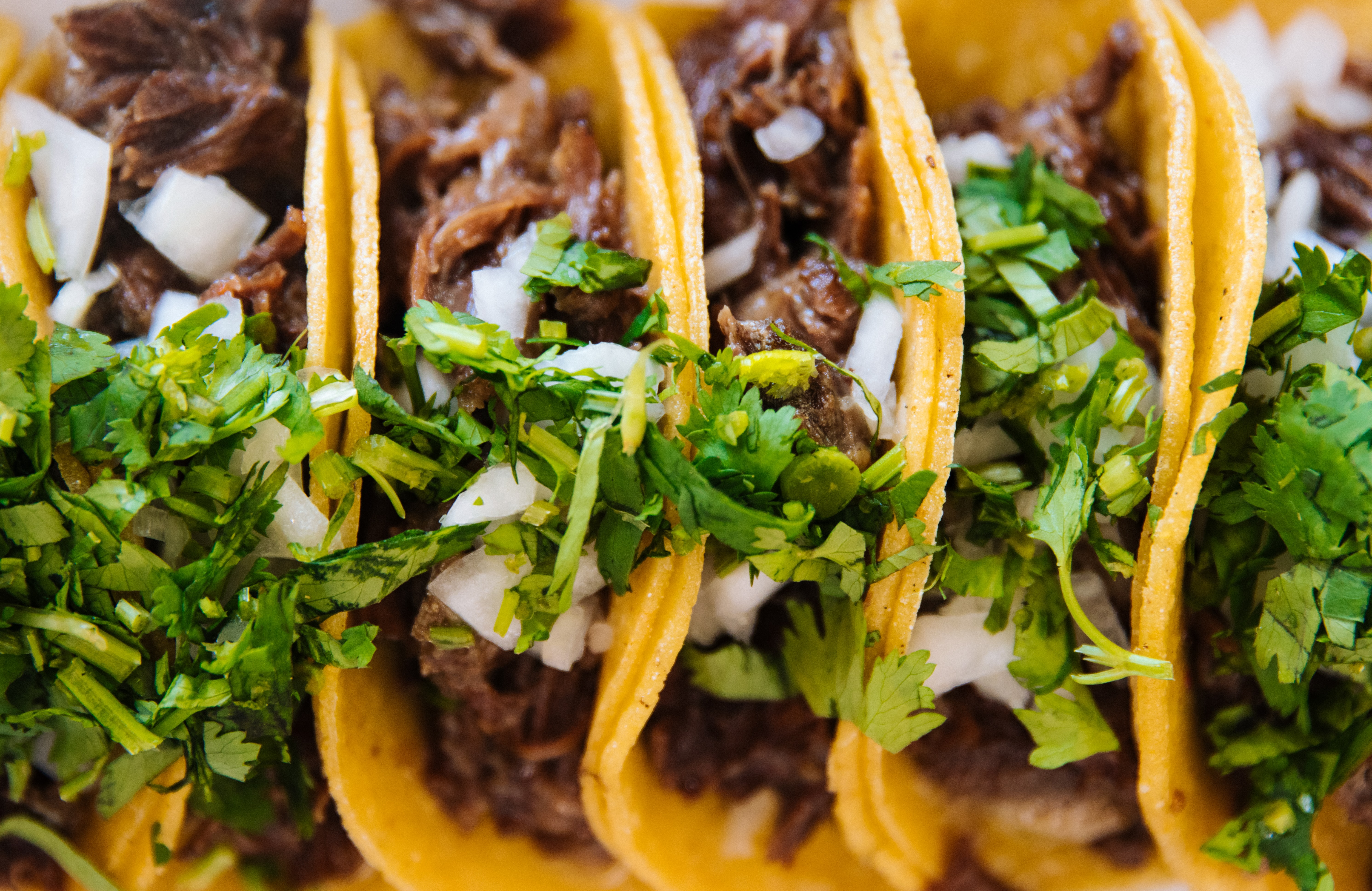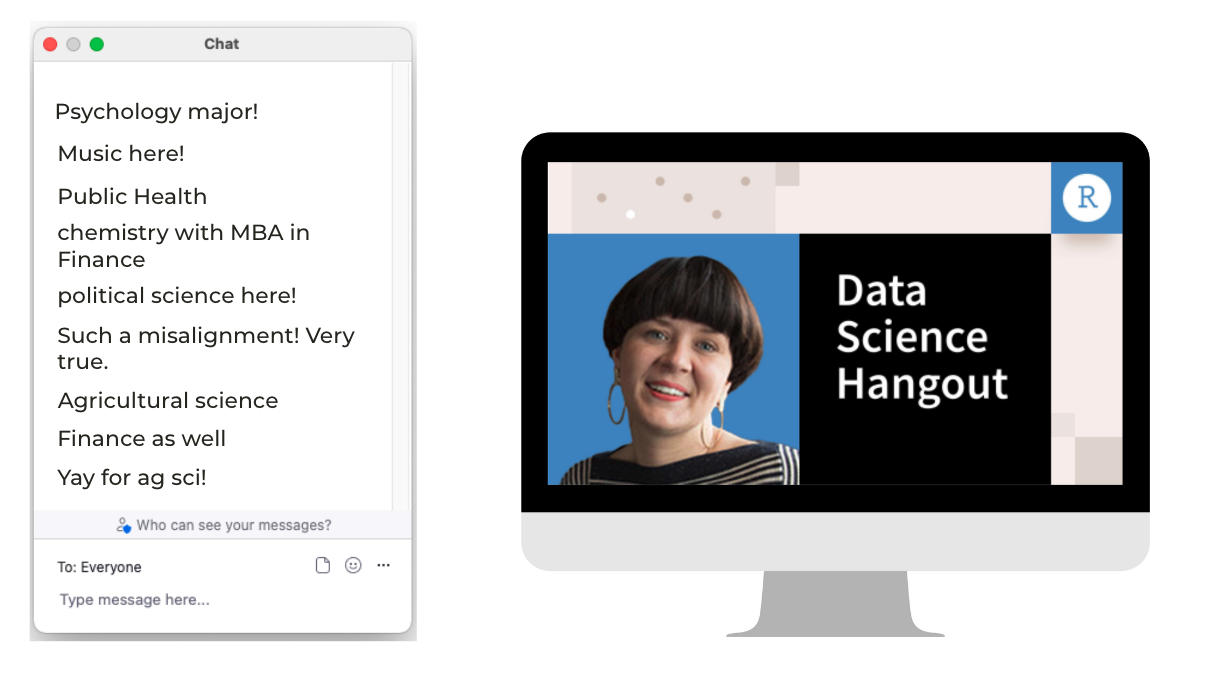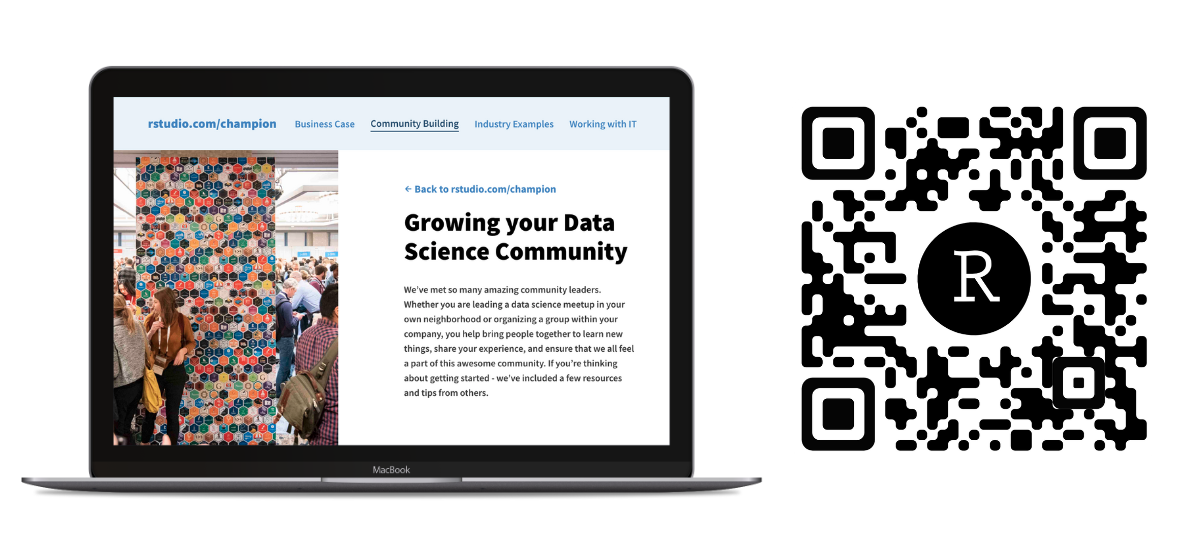A conference talk as a blog post:
It’s Wednesday night, and I just sat down at my mom’s bar, Sneekers. I can hear the band doing their soundcheck and I take a bite of Wicked Chicken and I look across the bar to see my mom sit down next to a regular. She strikes up a conversation with them and introduces them to my neighbors sitting a few seats down.
I’ve witnessed this so many times at Sneekers that it has become commonplace to me. Lately, especially the last year or so, I’ve thought a lot about the community building that she’s done so naturally the past 38 years. When I say growing up in a restaurant, I really mean that - it’s been a part of my life since I was a baby.
I now lead our Professional Community at RStudio. In my role, I get to work with a lot of you! I help connect customers to be able to share use cases and teach lessons learned with one another.
In doing so, I’ve learned that a lot of what makes us really good at our job is not what’s apparent in our resume or through our prior job experience or through the degree that we have. When I think about my role in organizing and building community at RStudio, I realize I’ve been running my own bar.
I’ll share four key takeaways from growing up at Sneekers that you can use in building or growing communities of your own:
- Find your Taco Tuesday …be consistent
- Start conversations across the bar …connect people based on interests
- Touch every table …reach out to your community members
- Look for untouched food & drinks …observe the unsaid
Find Your Taco Tuesday …or be consistent

At Sneekers (and at lots of other restaurants) - there are certain days that are often associated with certain foods or certain events. This could be tacos on a Tuesday or live music on Wednesday and Saturday. People don’t come to every single event, but when they have a free night or when they’re looking for something to do with friends, they know exactly where they can go.
I try to do this with our events at RStudio as well:
Every Tuesday at 12 ET, I host the RStudio Enterprise Community Meetup. This is a meetup event for people to share what they’re doing with data at their organizations. The speaker typically presents for 30 minutes and takes questions from the community. It may be people gathering around an industry group like Data Science in Healthcare or more broadly using Shiny in production.
Every Thursday at 12 ET, I host our Data Science Hangout. There are no presentations at these. Every week a different data science leader from the community joins me to answer questions from the community. All the questions are audience led from you all and could be questions like: How do I talk to executives? How are you thinking about hiring right now? Should I have a centralized or decentralized data science team?
I’ve included the link to the calendar for these, if you ever want to add the individual events or just the whole series of events to your calendar.
It’s important to point out that just because you hold events consistently doesn’t mean everyone will show up right away. It takes some time for things to catch on - and also requires incorporating the other tips below.
Start conversations across the bar …connect people based on interests

As I opened up with that scene of the regular sitting alone at the bar - my mom might walk over to them and strike up a conversation with both them and the couple sitting a few seats down. It might be about the band that’s playing next week she knows they like or it could be about a special on the menu that somebody else ordered across the bar too.
The topic itself doesn’t really matter as much, it’s that she’s giving permission for that interaction to happen and kicking off the conversation. She might start the conversation and have to go run to the kitchen or make a drink behind the bar, but that person sitting alone at the bar might stay a little bit longer because they now know somebody else. They might come back more regularly as well because they feel a part of the Sneekers’ community.
One of the Sneekers’ regulars said it best in this newspaper article from a few years ago. Deb is someone who I’ve known for many years now as a part of the Sneekers’ family - she has filmed employee weddings and actually made a video for my high school volleyball team.

I want people to feel this way at RStudio community events as well. As community organizers, we have a responsibility to bring people together based on shared interests. It’s important to note that these interests aren’t something that we ourselves have to be experts on.
We can go a step further here to help kick off conversations with people at events as well. One of my favorite examples of this comes from the Data Science Hangout (which happen every Thursday at 12 ET). This particular week featured Kristi Angel, Data Science Manager at Stitch Fix.
Leading up to that session, a few people had reached out to me on LinkedIn and at meetups, mentioning that they were having a hard time finding a new job and were not getting through to interview with hiring managers because they didn’t have a certain degree. I had the privilege of knowing this information as the organizer of the group and as someone who gets to talk with lots of people in my role.

I was able to ask this to Kristi for them anonymously - to get her insights and hear her experience. As the conversation continued, I started to see in the chat that everybody started commenting with their own degrees - specifically their own non-data science degrees in a (Zoom) room full of data scientists. It was one of those moments that you just remember, seeing people all supporting each other and cheering each other on for their non data science degrees and supporting people who are running into this right now. So, start those conversations across the bar.
Touch every table …thank people for being a part of the community

It’s pretty much a guarantee that if you go in for dinner at Sneekers, my mom will come by your table and thank you for coming. Of course if it’s her business partner, Annie’s night to work, she’ll be the one to come by. It doesn’t matter if you are a regular or if it’s your first time coming into Sneekers - they’ll stop by and thank you for coming in - ask where you’re from, how you’re enjoying your meal, or maybe reminisce with customers who have become like family.
I had no idea “table-touching” was a term in the restaurant industry until preparing for this talk. There are a lot of articles about how touching every table can help create a guest for life.
In the virtual world I want to be able to stop by and meet you at your table as well.
When people join a Meetup or Data Science Hangout, I will write down the names of people who mentioned they’re joining for the very first time - or maybe it’s a name that I haven’t seen join before. I’ll also write down a few names of people who have been coming back regularly or names/faces that I’ve been seeing on Zoom. I know this is not always possible with hundreds of people but I don’t think that’s a reason to not do it at all.
I may say to myself, today I’m going to write down the names of 5 regulars and 5 new people. I’ll reach out to them on LinkedIn just to say thank you: thank you for joining or thank you for the comment that you put into the chat. It might be just a few people that week, but hopefully as we go I get to reach out to everybody and touch every table.
Look for untouched food & drinks …or observe the unsaid

The last takeaway I want to leave you with, expands on the last one. Sometimes when you’re going by and visiting with a table, you get a chance to learn more about someone’s experience and how you can make that a little bit better. This is not only in what they’re telling you, but in observing the unsaid.
I’ve given enough restaurant examples now to put you in the role of owner. Imagine you walk up to a table of four who are waiting for trivia night to start. They ordered drinks earlier and three of them are finishing up. You notice that one of the drinks is pushed over to the side. You ask them how their night’s going and they tell you everything’s great. You can tell the fourth person didn’t enjoy their drink with the way it’s discarded over to the side. This is now an opportunity to ask them if there’s something else that you could get them and insist on getting them something that they’d enjoy.
This doesn’t have to just be about food or drinks. It could also be about stopping by a table and noticing that it’s somebody’s birthday - before they actually told you. It’s all about noticing the little things.
This dining experience looks a little bit different in a virtual world. Let me just take you on a journey here - with the stick figure on the map here. We can imagine it as anyone, but we’ll call them Sam in this example.

Sam joins a meetup event for the first time and listens in. Maybe they were on the list of one of the five people that I wrote down as a new person or maybe they weren’t?
They come back again and joins in listen only mode again. A week later, they comment in the chat and I notice Sam unmute briefly as it pops up to the top of my Zoom, but doesn’t end up speaking. I am not going to say to Sam on LinkedIn, “Hey, you joined three times and you never talk. What can I do to make you feel more comfortable?”
But I might say something like, “Hey Sam! Thanks so much for joining today. I loved your comment about learning R as a SAS user. I think that perspective was incredibly helpful. If you ever have any suggestions or things that we could be doing to make this event more useful, please let me know.”
Maybe Sam says, “Thanks for connecting. I had a great time. I wanted to ask a question, but I wasn’t sure if it was the right format.” I’ve now had the opportunity to learn something else about Sam’s experience by thanking them for coming. I now have that opportunity to let Sam know that they can ask anonymous questions as well and that this is a place for any questions to be asked.
However, there’s something more there. It shows me that I didn’t make it clear in the beginning of the presentation that people could ask questions anonymously. If I said that once, maybe that’s not enough because if someone who joined after the start would have missed it. I now know it’s something I should put in the chat as well.
A month later, maybe they keep coming back and eventually present at the meetup as well. This journey here is one of my favorite things about community building. Seeing somebody come for the very first time, starting to get to know people, seeing them connect with each other on Twitter and LinkedIn, and then eventually that person being the one presenting at the event too.

Keep learning & sharing with other community leaders
I’ve given you four key takeaways that I’ve learned from growing up at Sneekers but there are so many more tips out there from amazing community builders and organizers like you all.
Earlier this year, I led the creation of rstudio.com/champion, designed to help people advocate for data science at their own organizations. This also included a section on community building and includes a lot of knowledge and resources from amazing community builders that I’ve had the opportunity to meet. Thank you to all who have shared tips here!

There’s a feedback form on the very bottom of this site, where you can share your own tips and tricks or ask to see something else that’s maybe not there yet.
A big thank you to my mom, Rhonda, who I learned so much from and continue to learn so much from. Also, a huge congrats to her and her business partner, Annie, who are celebrating 38 years in business at Sneekers Cafe this year. Just like Sneekers would not be the same without their community, R and RStudio (soon to be Posit) would definitely not be the same without all of you.
If you are currently a community organizer or hoping to become one, we’d love to join forces to learn and help each other. If you’re interested in joining a future RStudio community-builder Slack group, let me know here.